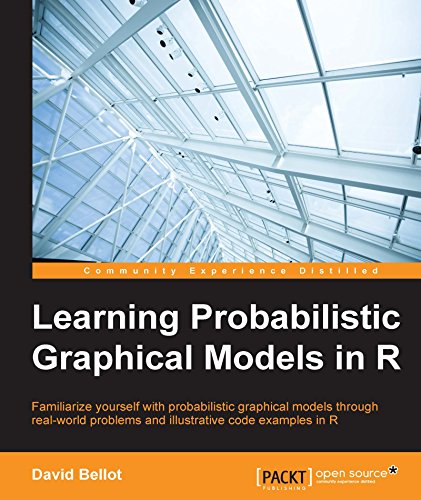

Most ebook files are in PDF format, so you can easily read them using various software such as Foxit Reader or directly on the Google Chrome browser.
Some ebook files are released by publishers in other formats such as .awz, .mobi, .epub, .fb2, etc. You may need to install specific software to read these formats on mobile/PC, such as Calibre.
Please read the tutorial at this link. https://ebooknice.com/page/post?id=faq
We offer FREE conversion to the popular formats you request; however, this may take some time. Therefore, right after payment, please email us, and we will try to provide the service as quickly as possible.
For some exceptional file formats or broken links (if any), please refrain from opening any disputes. Instead, email us first, and we will try to assist within a maximum of 6 hours.
EbookNice Team

Status:
Available4.5
10 reviewsProbabilistic graphical models (PGM, also known as graphical models) are a marriage between probability theory and graph theory. Generally, PGMs use a graph-based representation. Two branches of graphical representations of distributions are commonly used, namely Bayesian networks and Markov networks. R has many packages to implement graphical models.
We'll start by showing you how to transform a classical statistical model into a modern PGM and then look at how to do exact inference in graphical models. Proceeding, we'll introduce you to many modern R packages that will help you to perform inference on the models. We will then run a Bayesian linear regression and you'll see the advantage of going probabilistic when you want to do prediction.
Next, you'll master using R packages and implementing its techniques. Finally, you'll be presented with machine learning applications that have a direct impact in many fields. Here, we'll cover clustering and the discovery of hidden information in big data, as well as two important methods, PCA and ICA, to reduce the size of big problems.
What you will learnDavid Bellot is a PhD graduate in computer science from INRIA, France, with a focus on Bayesian machine learning. He was a postdoctoral fellow at the University of California, Berkeley, and worked for companies such as Intel, Orange, and Barclays Bank. He currently works in the financial industry, where he develops financial market prediction algorithms using machine learning. He is also a contributor to open source projects such as the Boost C++ library.
Table of Contents